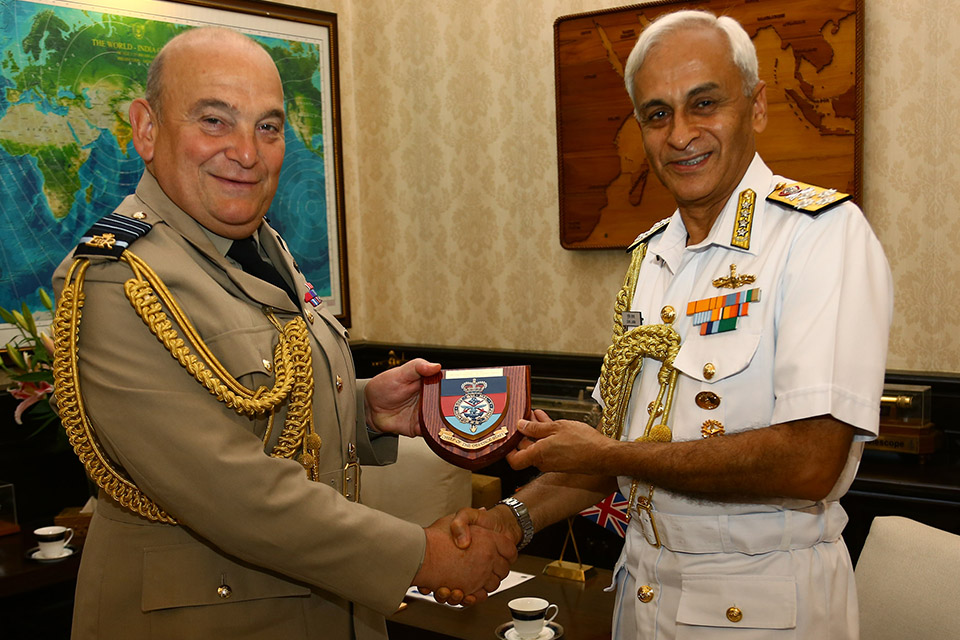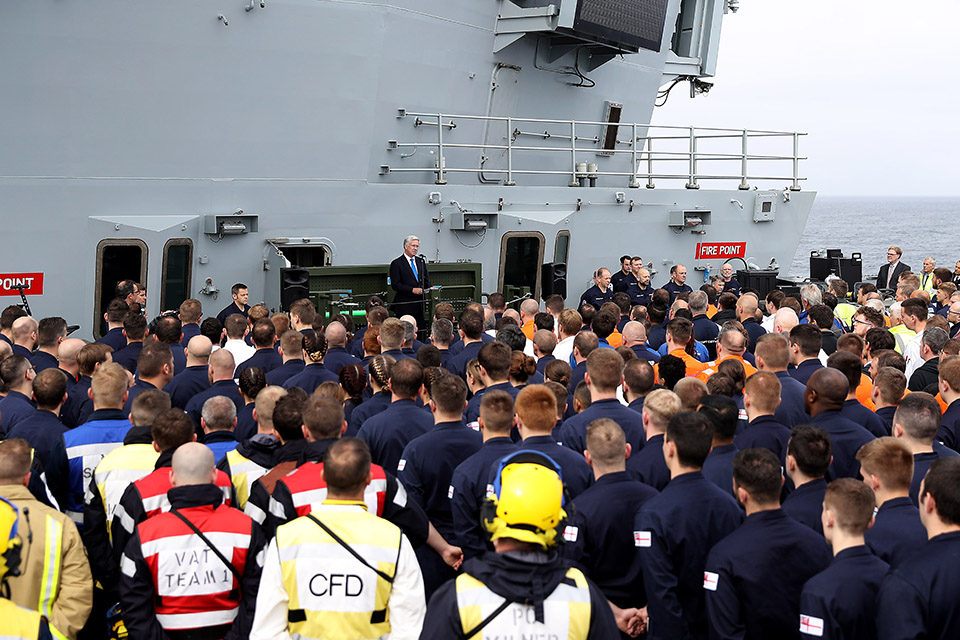Announced by the Defence Secretary in Oxford in February, the Panel will be charged with driving forward the MOD’s Innovation Initiative, which aims to encourage imagination, ingenuity and entrepreneurship, in pursuit of maintaining a military advantage in the future. Today’s session introduced the panel to key aspects of the MOD’s work: from operations and research to partnerships with business and support for jobs and the economy.
The panel members are:
- Former Chairman of McLaren Technology Group, Ron Dennis CBE (co-Chair)
- Former CEO of GlaxoSmithKline, Sir Andrew Witty (co-Chair)
- Army Air Corps officer and European Space Agency astronaut, Major Tim Peake CMG,
- Former Director of GCHQ, Robert Hannigan CMG, and
- Chief Executive of Innovate UK Dr Ruth McKernan CBE.
Minister for Defence Procurement Harriett Baldwin said:
Our £800 million Innovation Initiative will help our Armed Forces maintain their edge into the future, where ever-evolving technologies present new challenges and opportunities. That’s why we have committed to spending 1.2% of our £36 billion growing defence budget on science and technology.
The Innovation Panel will help meet the complex challenges of the 21st Century, while delivering the high-wage, high-skills jobs of the future; and it’s particularly fitting that we welcome astronaut Major Tim Peake as I announce the UK’s leading role in cutting-edge satellite research.
The Panel will drive the MOD’s partnerships with the UK’s most-influential and forward-looking innovators and ensure the Department is driving the right change at the necessary pace to meet its goals for the future. This might involve advising on individual projects, promoting dialogue with industry, or reviewing the MOD’s Innovation strategy.
Chairman of McLaren Technology Group, Ron Dennis said:
Innovation is at the heart of what keeps the UK safe, so I’m delighted to join my fellow Panel Members—all world-leaders in their fields—to get to grips with the challenge of guaranteeing our security through innovation in Defence’s technology, culture, and research.
UK Space Innovation
UK space scientists at the Defence Science and Technology Laboratory (Dstl) are at the forefront of this drive for innovation; and Mrs Baldwin announced today that the UK is leading an innovative experiment to tackle the growing problem of space junk. If this problem is not addressed, space junk threatens to make space exploration and satellite launches impossible. It also poses a hazard to existing satellites, which make an important contribution to the UK’s military capability.
To tackle this problem, Dstl is leading the UK element of the Daedalus experiment – part of the Space Situational Awareness Project in Dstl’s Space Programme – which is exploring the effect on satellites of so-called Icarus ‘de-orbit sails’. When deployed, the sail increases drag, causing a controlled descent into the Earth’s atmosphere where the satellite will burn up.
Innovation driving UK prosperity
Defence Innovation drives UK prosperity. This is demonstrated in a new report by independent economics consultancy SQW, which shows how Ploughshare Innovations, Dstl’s commercialisation arm, has directly contributed to UK growth through the creation of hundreds of jobs and multi-million pound export deals. They have:
- Created 585 jobs since 2005;
- Seen an increase of 70% in exports from £44 million to £75 million since 2015;
- Attracted £140 million worth of investment for spin-out companies.
Ploughshare’s work has contributed to the development of advanced vehicle armour, electronic warfare software, and bio and chemical threat detection. This also supports UK supply chains: 85% of the suppliers for the vehicle armour are UK-based. Ploughshare’s achievements include:
- Ebola Detection Kit – Ploughshare helped to market Dstl technology that provides a screening test for the Ebola virus, trialled in Sierra Leone to support those affected.
- Rapid Biothreat and Explosives Detection – Ploughshare licensed technology for a device to identify powders or liquids in just 15 minutes.
- Autonomous Boats – licensed to ASV Global, this technology provides an autonomous navigation system which allows Unmanned Surface Vessels (USVs) to operate safely and remotely at high speed.


